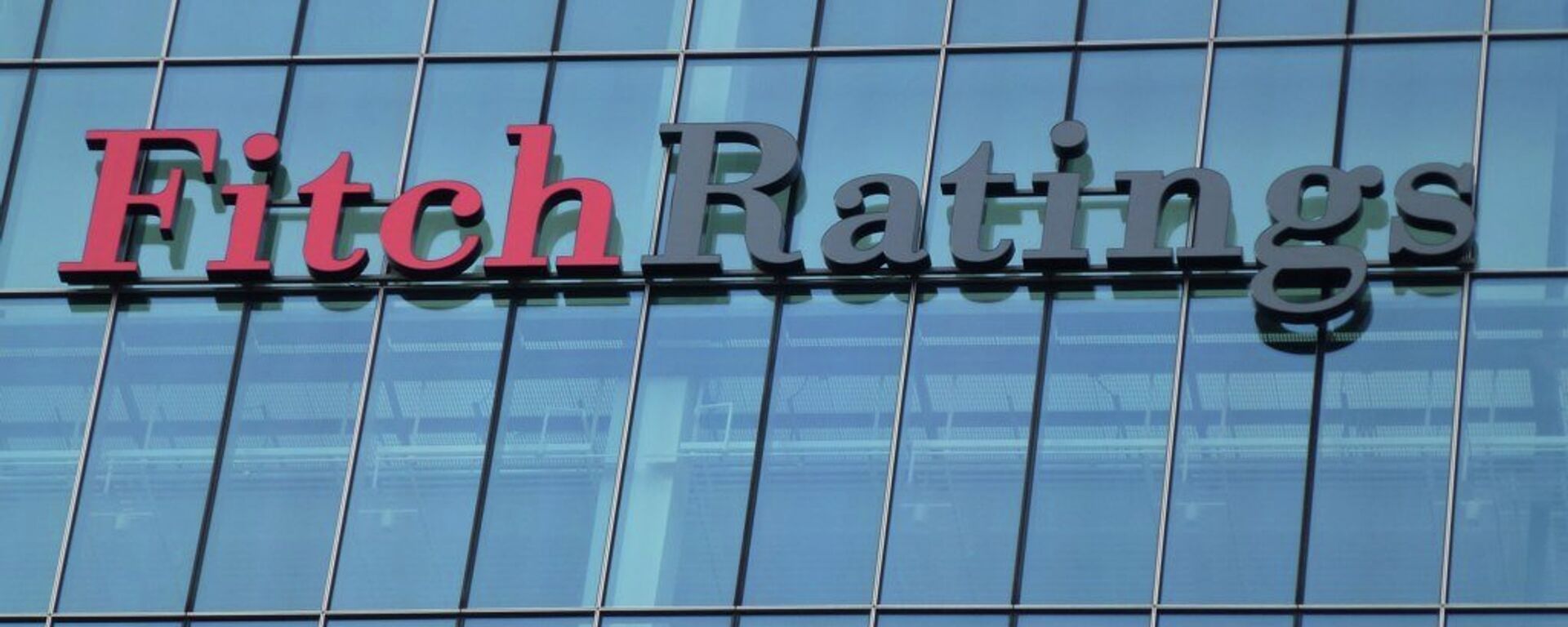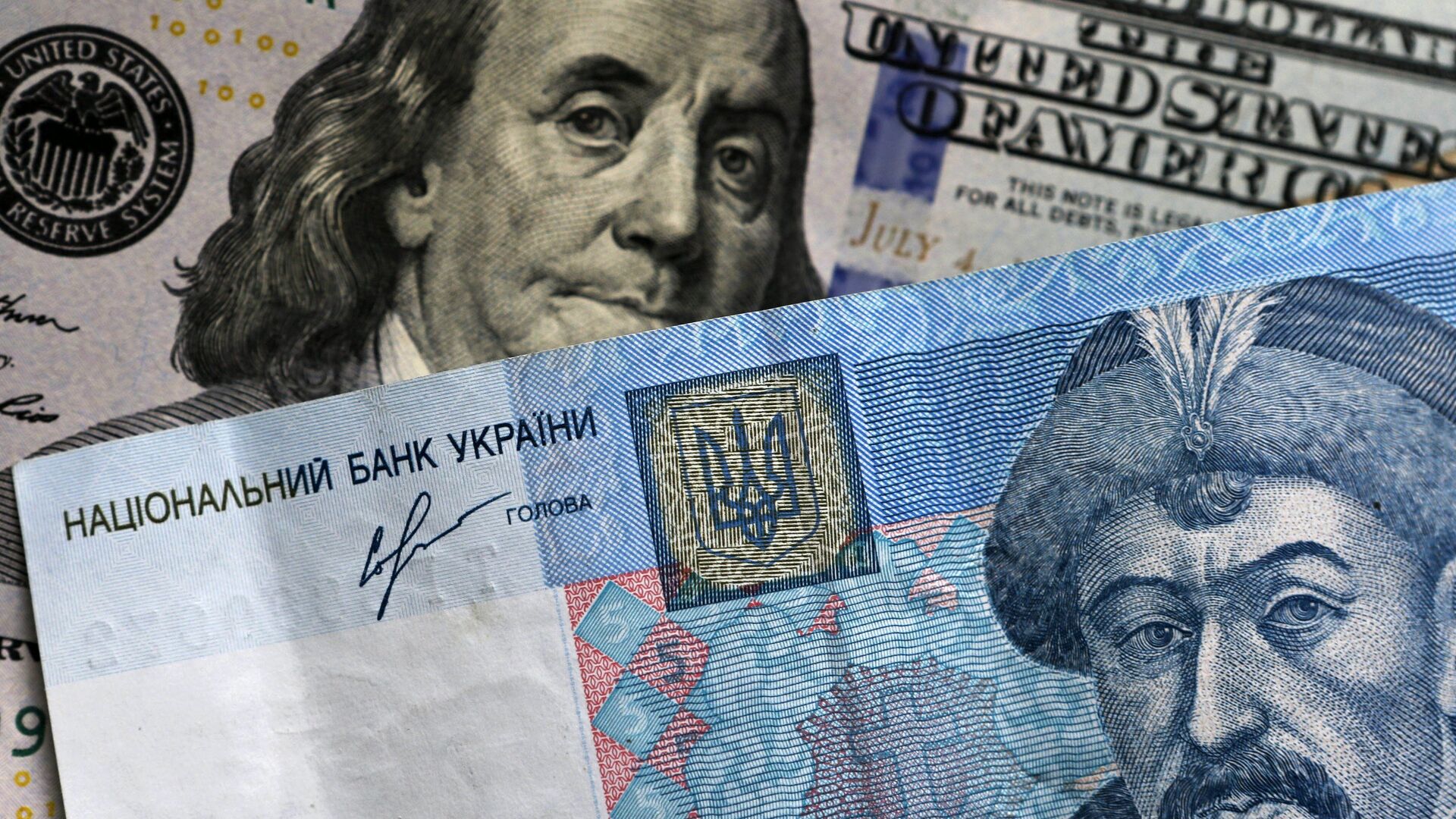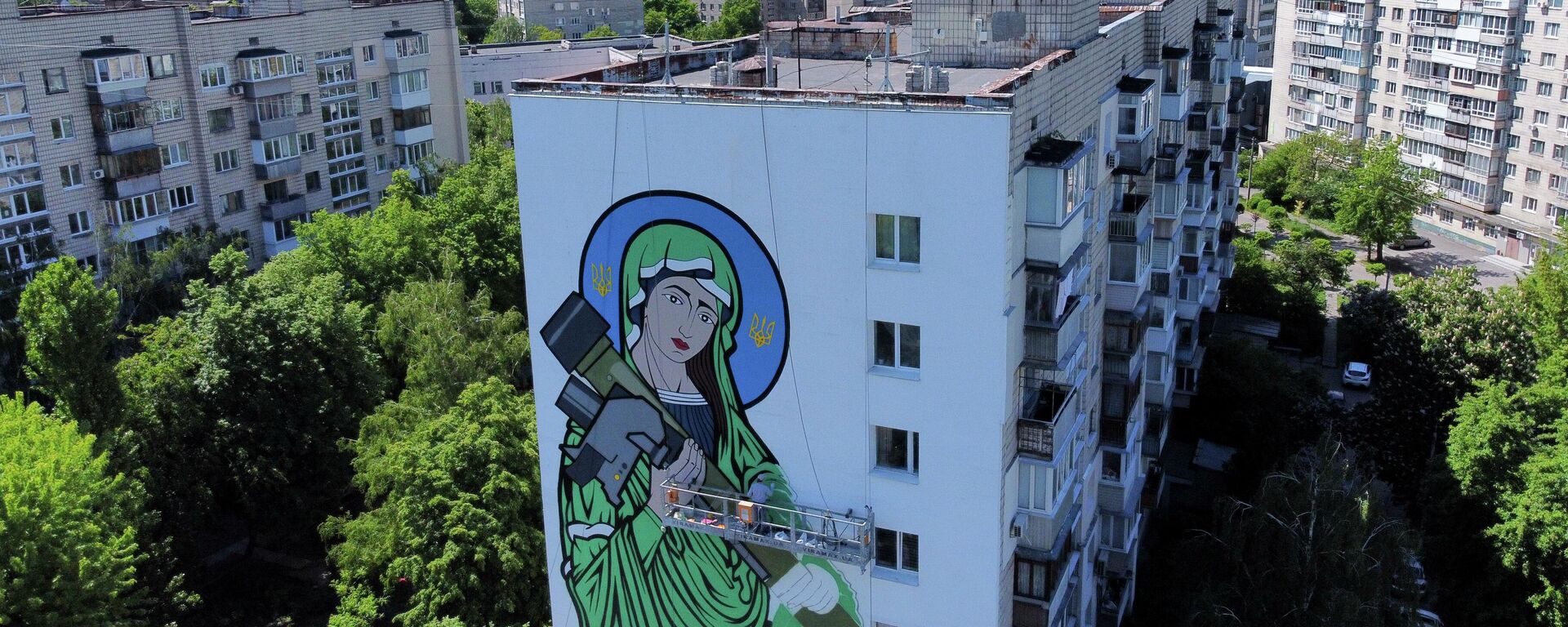https://sputnikglobe.com/20220813/ukraines-finance-minister-reports-problems-finding-cash-to-pay-troops-despite-wests-aid-bonanza-1099557570.html
Ukraine’s Finance Minister Reports Problems Finding Cash to Pay Troops Despite West’s Aid Bonanza
Ukraine’s Finance Minister Reports Problems Finding Cash to Pay Troops Despite West’s Aid Bonanza
Sputnik International
The US and its allies have approved over $76 billion in military and fiscal aid to Kiev, equivalent to 40% of Ukraine’s GDP in 2021. However, much of this... 13.08.2022, Sputnik International
2022-08-13T15:29+0000
2022-08-13T15:29+0000
2022-10-19T20:56+0000
russia's special operation in ukraine
corruption
aid
salary
ukraine
https://cdn1.img.sputnikglobe.com/img/105305/69/1053056955_0:215:2879:1834_1920x0_80_0_0_4f11ef70003df662ed23f4c5ef45a75f.jpg
Ukraine is having trouble scrapping together the money required to pay soldiers’ salaries and has resorted to money printing thanks to a growing gap between military spending and declining tax revenues, combined with a slowing flow of Western aid, Finance Minister Sergii Marchenko has indicated.The minister explained that the government is now spending more than 60 percent of the budget on military-related expenditure, and has received assurances from Western countries of new loans and grants to cover non-military spending.The minister indicated that the government is disregarding concerns from the National Bank about skyrocketing inflation, saying “it is better to risk high inflation than not to pay soldiers’ salaries.” He added that he expects the conflict to turn into a “marathon” lasting for the remaining of 2022 and 2023. “This is a war of attrition. You have to think in these terms,” Marchenko said.Ukraine has received a total of more than $50 billion in military and non-military aid authorizations from the US alone, including everything from weapons and new defense contracts for the military-industrial complex to replenish old inventories, to fiscal support and loans to help the Ukrainian state stay afloat, pay its creditors on time and avoid paralysis, to humanitarian assistance.US assistance has been matched by nearly $16 billion in aid from the European Union, plus $6.22 billion, $3.34 billion, $2.85 billion, $2.61 billion and $2.11 billion from Britain, Germany, Poland, Canada and France, respectively, for a grand total of over $76 billion.On Friday, Ukrainian presidential chief economic advisor Oleg Ustenko urged the International Monetary Fund to shell out $5 billion as part of a larger $15-20 billion aid package over the eighteen months to two years to encourage others, including the US, the EU and other countries to go ahead with additional support. Last month, Prime Minister Denys Shmygal told attendees of a Switzerland-based conference dedicated to Ukraine’s economic recovery that the country would need some $750 billion in assistance.Corruption concerns and questions about the final destination of the tens of billions of dollars doled out to Ukraine aid periodically emerge in mainstream media reporting on the conflict. Last month, Ukrainian-born Republican Congresswoman Victoria Spartz accused Ukrainian presidential chief of staff Andriy Yermak of sabotaging the country’s defenses, and of appointing officials engaged in corruption to fight graft. Ukrainian officials dismissed her concerns as “Russian propaganda.”Last week, CBS News posted and then deleted a bombshell documentary which uncovered that as little as 30 percent of the military assistance Western countries had sent to Kiev in the first months of the conflict had actually reached the frontlines. The documentary was quickly taken down to be “updated” to account for new information from the Pentagon and other sources.Ukrainian Foreign Minister Dmytro Kuleba tweeted that the retraction was not enough and called for an “internal investigation” at CBS to determine “who enabled” the documentary’s release and why.
https://sputnikglobe.com/20220808/cbs-deletes-documentary-revealing-that-just-30-of-wests-aid-to-ukraine-reached-frontlines-1099383460.html
https://sputnikglobe.com/20220813/fitch-ratings-sp-global-ratings-consider-ukraines-debt-restructuring-as-default-1099549347.html
ukraine
Sputnik International
feedback@sputniknews.com
+74956456601
MIA „Rossiya Segodnya“
2022
News
en_EN
Sputnik International
feedback@sputniknews.com
+74956456601
MIA „Rossiya Segodnya“
Sputnik International
feedback@sputniknews.com
+74956456601
MIA „Rossiya Segodnya“
corruption, aid, salary, ukraine
corruption, aid, salary, ukraine
Ukraine’s Finance Minister Reports Problems Finding Cash to Pay Troops Despite West’s Aid Bonanza
15:29 GMT 13.08.2022 (Updated: 20:56 GMT 19.10.2022) The US and its allies have approved over $76 billion in military and fiscal aid to Kiev, equivalent to 40% of Ukraine’s GDP in 2021. However, much of this assistance doesn’t seem to be reaching its intended destinations, with CBS issuing (and then deleting) a story last week showing that as little as 30% of the military aid was reaching the front.
Ukraine is having trouble scrapping together the money required to pay soldiers’ salaries and has resorted to money printing thanks to a growing gap between military spending and declining tax revenues, combined with a slowing flow of Western aid, Finance Minister Sergii Marchenko has indicated.
“Every day and night it’s a constant headache,” Marchenko
told the Wall Street Journal in an interview.
The minister explained that the government is now spending more than 60 percent of the budget on military-related expenditure, and has received assurances from Western countries of new loans and grants to cover non-military spending.
“The support we get now gives us the opportunity to win this war and to do it sooner rather than later. Without this money, the war will last longer and it will damage economies more,” Marchenko said.
The minister indicated that the government is disregarding concerns from the National Bank about skyrocketing inflation, saying “it is better to risk high inflation than not to pay soldiers’ salaries.” He added that he expects the conflict to turn into a “marathon” lasting for the remaining of 2022 and 2023. “This is a war of attrition. You have to think in these terms,” Marchenko said.
Ukraine has received a total of
more than $50 billion in military and non-military aid authorizations from the US alone, including everything from weapons and new defense contracts for the military-industrial complex to replenish old inventories, to fiscal support and loans to help the Ukrainian state stay afloat, pay its creditors on time and avoid paralysis, to humanitarian assistance.
US assistance has been matched by
nearly $16 billion in aid from the European Union, plus $6.22 billion, $3.34 billion, $2.85 billion, $2.61 billion and $2.11 billion from Britain, Germany, Poland, Canada and France, respectively, for a grand total of over $76 billion.
On Friday, Ukrainian presidential chief economic advisor Oleg Ustenko
urged the International Monetary Fund to shell out $5 billion as part of a larger $15-20 billion aid package over the eighteen months to two years to encourage others, including the US, the EU and other countries to go ahead with additional support. Last month, Prime Minister Denys Shmygal told attendees of a Switzerland-based conference dedicated to Ukraine’s economic recovery that the country would need some
$750 billion in assistance.
Corruption concerns and questions about the final destination of the tens of billions of dollars doled out to Ukraine aid periodically emerge in mainstream media reporting on the conflict. Last month, Ukrainian-born Republican Congresswoman Victoria Spartz
accused Ukrainian presidential chief of staff Andriy Yermak of sabotaging the country’s defenses, and of appointing officials engaged in corruption to fight graft. Ukrainian officials dismissed her concerns as “Russian propaganda.”

13 August 2022, 10:28 GMT
Last week, CBS News
posted and then deleted a bombshell documentary which uncovered that as little as 30 percent of the military assistance Western countries had sent to Kiev in the first months of the conflict had actually reached the frontlines. The documentary was quickly taken down to be “updated” to account for new information from the Pentagon and other sources.
Ukrainian Foreign Minister Dmytro Kuleba
tweeted that the retraction was not enough and called for an “internal investigation” at CBS to determine “who enabled” the documentary’s release and why.




